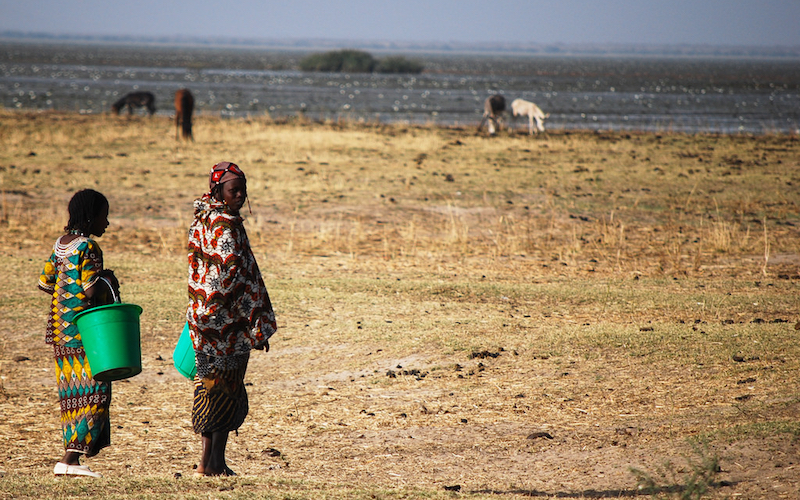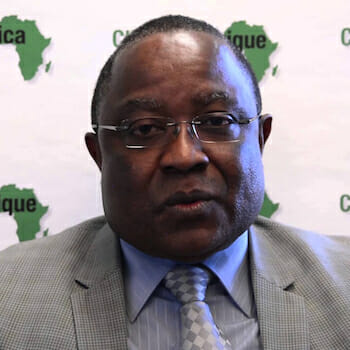
America’s Dropout from the Paris Agreement Signals Important Lessons for Africa
The decision by President Donald Trump to ditch the Paris Climate Agreement to which the United States is a signatory might have been a courageous effort to deliver on an election promise but, on a close examination, current estimates on disasters linked to climate vagaries show that his advisers got both the science and the math wrong when they touted economic gains as the main reason for the withdrawal.
Though predictable to the last minute, the announcement to withdraw nevertheless triggered fiery reactions with chilling waves of concern across the world; generating different interpretations and contextualization based on its implications and consequences both within and outside the US. Despite the varying perspectives on how to gauge the withdrawal, the immediate unifying premise of shared concern gravitated around finances, especially US pledges in contribution to the global climate processes such as the Green Climate Fund and other bilateral supports for climate change responses. The consolatory expectation for now is that China and European nations will step in and pick up the bills abandoned by the US. This seriously overlooks the fact that US withdrawal from the Paris Agreement follows a similar pattern to what they did with the Kyoto Protocol, which at that time was also mistakenly thought to be a blip that could be easily filled.
In the aftermath of political reactions to the Trump administration, the time is right for a rigorous enquiry into the real and multifaceted consequences of that withdrawal:
As the biggest emitter/polluter grossly responsible for the largest proportion of historical emissions in the atmosphere which is the underlining cause of the problem, the pull-out cannot simply be measured in finances, but considered fundamentally as a loss of accountability and differentiated responsibility for the US’s share of the problem.
Can it be expected of China which is also rapidly catching up to the US as a major emitter, to be capable of picking up the deficit in emission upset abandoned by the US (constituting 17.89% of global emissions)?
What happens with the US NDCs in the global stocktaking coming up in 2020? The whole idea of the intended nationally determined contribution was politically designed as a flexible mechanism to accommodate the participation and engagement of the United States in the global process, yet it has been treated with dejection.
Most of the technologies required for mitigation and adaptation are patented in the US, further complicating their transfer.
Constituting a response
The political undercurrent of US withdraw needs to be analyzed methodically and exhaustively in order to fully capture the scope of its implication before constituting a response. It is important to recall the fact that in his speech announcing the withdrawal, President Trump emphasized that: “to fulfill my solemn duty to protect America and its citizens, the United States will withdraw from the Paris Climate Accord but begin negotiations to re-enter our way into Paris Accord by entering into an entirely new transaction or terms that are fair to the United States, its businesses, its workers, its people and its tax payers.” That notwithstanding, President Trump’s reaction represents a recoiling from collectivism embodied in the spirit of the negotiation, back into individualism in the pretext of national interests. This is a significant shift in multilateral processes. The collateral damage in all of this is that the Trump administration has cast a major doubt on the framework of the convention erected on science under the IPCC that constitutes the foundational pillars of the negotiations for informed decisions based on scientific evidence.
By eroding the confidence in the science that guide the negotiations, and shape climate response actions, as well as expanding the solution space, there is a looming catastrophe as the intensity and frequency of climate disasters manifest ubiquitously across the globe especially in regions such as Africa and other developing countries; but also in the United States. It is true that Africa is among the regions of the world with the least capacity to respond to different climate vagaries. Casting of doubt on the credibility of the science of the cause, inversely undermines the investments in the science for the solutions. Promoting the resurgence of coal mining for example, is a total disregard of the science of the solution. Under such a torrent, the fundamental question therefore is how should Africa respond to President Trump’s withdrawal from the Paris Agreement.
The withdrawal came when the global climate process had entered into a phase of implementation orbiting around the nationally determined contributions that require huge investments in the means of implementation – capacity building, finance and technology transfer. One of the fundamental questions for this continent is, with the imminent collapse of voluntarism, shouldn’t Africa recoil into unilateralism in pursuing its development first in order to be on equal footing in shielding the continent from climate risks like every other region? Africa’s climate risk burden is exacerbated and largely encompassed in its low development that obligates the continent’s priority in the negotiations to be adaptation.
Incidentally, high adaptive capacity commonly attributable to high development status and human wellbeing, is not an iron shield to climate change impacts. Thus, even developed countries are also vulnerable to climate change impacts. While there was an outcry internationally against President Trump’s withdrawal from the Paris Agreement, his domestic reactions are even worse than the withdrawal in tearing down climate resilient measures put in place by his predecessor. The cancellation of the flood risk standards tailored to boost infrastructure resilience to climate change impacts of rising sea levels and flooding especially in coastal cities is a major false step towards disaster. Unfortunately, this happened just weeks before hurricane Harvey hit Houston and Louisiana. Former president Obama had put these regulations in place to ensure that the construction of roads, bridges, buildings and other infrastructure take climate change considerations into account. The most public pretext for rescinding the agreement was to speed up infrastructure project approval processes, according to Trump who said during the announcement that “we’re going to get infrastructure built quickly, inexpensively, relatively speaking, and the permitting process will go very, very quickly.”
Unfortunately, the naiveté in the view was shattered by the incurred loss and damage due to Hurricane Harvey currently estimated to be over $200 billion. The time it will take in rebuilding the damaged infrastructure, definitely surpasses the additional approval time that would have been required for project approval by the regulation. The Congressional Budget Office of the Congress of the United States reported in June 2016 that the future cost that will be incurred in loss and damage due to frequent and more intense hurricane because of climate change, will increase more rapidly than the growth in the economy of America. This will significantly affect the ability to pay for the damage as a share of the gross domestic product (GDP). It is estimated that 0.16% GDP ($28 billion) is annually spent on damage but this is expected to increase to 0.22%GDP ($39 billion) by 2075, and 45% of this is attributable to climate change, and 55% to coastal development. The recommendations of the Congressional Budget Office for reducing public spending in hurricane damage include limiting greenhouse gas emissions, as well as investing in structural changes to reduce vulnerability to hurricanes commonly referred to as climate resilient infrastructure. Interestingly, these are the core tenets of the Paris Agreement.
Equally interesting is the way the US media and politicians are reacting to the series of hurricanes that have barely subsided in Florida. Dan Rather, the reputed former anchor of CBS news poignantly put it this way on his Facebook page “Our climate is changing, and human activity is a major factor. We cannot ignore this any longer. We have to make changes in the way we live, where we live and how we live. To ignore this is a dereliction of duty, as assuredly as if we tell people to ride out a category 5 storm. Science gives us satellite images of hurricanes. It gives us models of where they will strike. But it also gives us the data that says that our warming planet will produce catastrophic natural challenges like the ones we are seeing, even worse…”
There could hardly be a clearer message to President Trump and other climate deniers.

